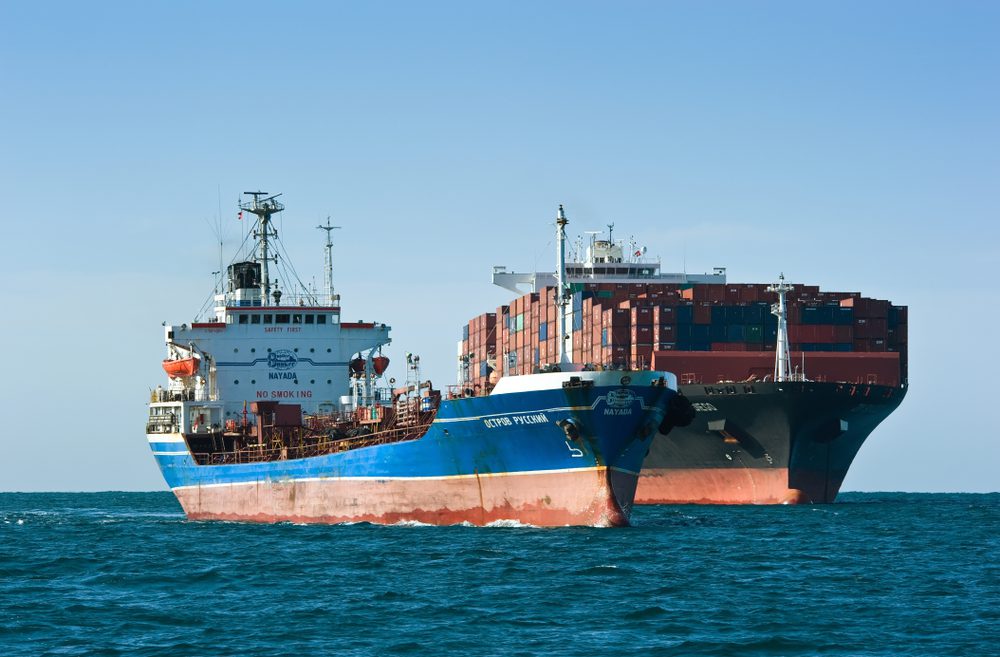MOL to Equip LR1 Tanker with Carbon Capture System
Mitsui O.S.K. Lines will equip its LR1 product tanker, Nexus Victoria, with the an onboard CO2 capture system. The installation will mark the first commercial installation of a CO2 capture...


Photo: VladSV / Shutterstock.com
![]()
![]()
The United Nations shipping agency the International Maritime Organization (IMO) will from January 2020 limit the sulphur content in fuel ships use to 0.5%.
With the exception of some zones around northwest Europe and North America known as Emission Control Areas where maximum sulphur content is restricted to 0.1% sulphur, the current global cap is 3.5%.
The sulphur switch will be a mammoth task as it requires adapting the 300 million tonne a year bunker fuel market, valued at over $200 billion at current prices.
Oil majors, including BP and Royal Dutch Shell , have announced they are producing very low sulphur fuels that meet the 0.5% requirements but the specifications of those products are not yet clear nor are the ports where they will be available.
A source at a major shipowner told Reuters his company has tested fuels from both Shell and BP and have not had any issues with quality.
“We do see a lot more refiners, a lot more smaller, second-tier refiners coming up with 0.5% fuel as well, so we don’t think there will be much of an issue with the supply side,” Rutstin Edwards, head of fuel oil procurement at Euronav, one of the world’s largest shipowners said.
He was speaking at the Platts European Bunker Fuel Conference in Amsterdam on Thursday.
Claus Kesting, general manager of bunker procurement at Danish shipowner J. Lauritzen, said that suppliers at smaller ports where his firm operates are yet to start complying.
“Going forward to 2020, fuel, at least to me personally, is a bit of a black box, it’s not quite clear what you get,” Sjaak Klap, vice president for business development at Dutch shipowner Spliethoff told the conference.
Spliethoff plans to take a more cautions approach to the transition to low-sulphur fuels, opting in the first three to six months to buy the more expensive marine gasoil before switching to the new fuels.
“We will start with marine gasoil (MGO) first, see where (the) market is going, hear about results and then act,” Klap said.
Under the IMO rules, only ships fitted with sulphur-cleaning devices known as scrubbers will be allowed to continue burning high-sulphur fuel.
Euronav has so far snubbed using them on its fleet, with Edwards saying “it’s a rather expensive installation cost for limited time frame”.
He added that the company had concerns about clarity surrounding the banning of certain types of scrubbers at some ports.
Spliethoff on the other hand, has invested in scrubbers but its aim to have its deep fleet ready with them by the end of the year could be scuppered by the company’s recent acquisition of 11 used tankers, Klap said.
Manisha Mathur, head of procurement at ferry-operator DFDS, said scrubbers made financial sense for the company, adding that going forward at least 66% of its fleet will have scrubbers. (Reporting by Ahmad Ghaddar; editing by Emelia Sithole-Matarise)
(c) Copyright Thomson Reuters 2019.
Join the gCaptain Club for curated content, insider opinions, and vibrant community discussions.


Join the 105,954 members that receive our newsletter.
Have a news tip? Let us know.
Access exclusive insights, engage in vibrant discussions, and gain perspectives from our CEO.
Sign Up




Maritime and offshore news trusted by our 105,954 members delivered daily straight to your inbox.



Essential news coupled with the finest maritime content sourced from across the globe.
Sign Up